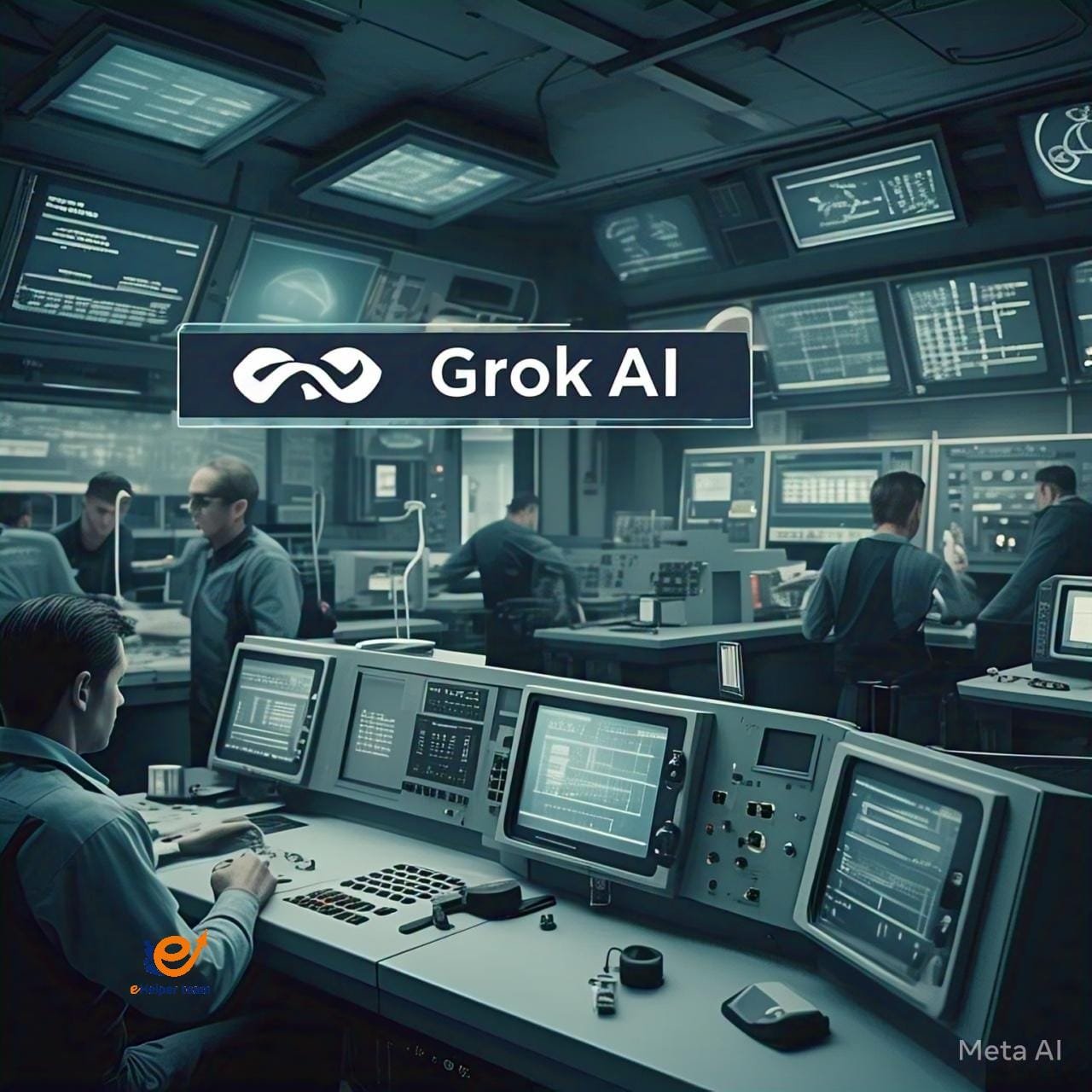Modern Technologies in Trading: The Role of Quantum AI
The trading landscape has undergone a massive transformation over the past decade, with modern technologies like Artificial Intelligence (AI) and Quantum Computing leading the charge. Among these innovations, Quantum AI stands out as a groundbreaking solution poised to redefine trading strategies and practices. From analyzing vast datasets in real time to predicting market trends with unparalleled accuracy, Quantum AI is revolutionizing the way we trade.
This article delves into how Quantum AI and other modern technologies are shaping the trading world, providing insights for those keen on leveraging these tools for optimal results.
How Modern Technologies Are Shaping Trading

The Integration of AI in Trading
Artificial Intelligence has become a cornerstone in trading due to its ability to process and analyze data faster than any human could. AI-powered algorithms can:
- Detect patterns in historical data to forecast price movements.
- Automate trading to execute orders at the perfect moment.
- Mitigate risks by identifying and responding to market anomalies.
The Roadmap on quantum nanotechnologies highlights how integrating AI with quantum advancements can elevate these capabilities further. By leveraging quantum-powered algorithms, traders can achieve unparalleled speed and accuracy in data processing, enabling even more precise forecasting and risk management.
For instance, hedge funds and investment firms have adopted AI for portfolio management, improving decision-making and boosting returns. With the convergence of AI and quantum nanotechnologies, the future of trading is set to become even more innovative and efficient.
1. Detect Patterns in Historical Data to Forecast Price Movements
Description:
Analyzing historical market data is a cornerstone of successful trading. Patterns such as trends, cycles, and anomalies can provide insights into future price movements.
Role of AI:
- Identifying Trends: AI algorithms can scan years of market data to recognize recurring patterns, such as bullish or bearish trends.
- Predicting Outcomes: By learning from past data, AI systems generate accurate forecasts, helping traders anticipate price fluctuations.
- Enhancing Decision-Making: Pattern detection provides traders with actionable insights to optimize their strategies.
Example:
An AI-powered tool analyzes historical data from the S&P 500 index to identify patterns that indicate potential market corrections.
2. Automate Trading to Execute Orders at the Perfect Moment
Description:
Manual trading often involves delays and human error. Automated trading systems solve this by executing trades with precision and speed, providing an essential advantage in fast-paced markets.
Role of AI:
- Real-Time Analysis: AI constantly monitors market conditions to identify ideal entry and exit points, ensuring trades are executed at the perfect moment.
- Execution Without Hesitation: Once conditions align with predefined criteria, AI executes trades instantly, eliminating the lag associated with human decision-making.
- Customizable Strategies: Traders can program AI to follow specific rules, such as stop-loss limits or profit targets, tailoring strategies to their unique risk tolerance.
Publications like Physics World have discussed how AI, combined with emerging technologies such as quantum nanotechnologies, can further enhance automated trading systems. With a Roadmap on quantum nanotechnologies guiding the development of faster, more efficient systems, automated trading could soon operate with even greater precision, reducing the risk of errors and increasing the likelihood of success in volatile markets.
Example:
A trader uses an AI-driven bot to automatically buy tech stocks when prices drop by 5% and sell when they rise by 10%, maximizing profits with minimal effort.
3. Mitigate Risks by Identifying and Responding to Market Anomalies
Description:
Market anomalies, such as sudden price spikes or drops, can lead to significant losses if not addressed promptly. AI helps detect and respond to these irregularities.
Role of AI:
- Early Anomaly Detection: AI systems monitor markets for unusual activity, such as abnormal trading volumes.
- Real-Time Alerts: Traders receive instant notifications, enabling them to take immediate action.
- Proactive Adjustments: AI can automatically adjust strategies to minimize losses during volatile conditions.
Example:
An AI platform flags unusual trading activity in a commodity market, prompting the trader to hedge their positions and avoid potential losses.
Quantum Computing: A New Era
While traditional AI is already impressive, Quantum Computing adds a new dimension by solving problems deemed impossible for classical computers. Quantum systems use qubits, enabling simultaneous calculations at exponential speeds. This capability is especially beneficial for trading, where:
- Complex modeling of market behavior is required.
- High-frequency trading demands ultra-fast execution.
- Risk analysis needs a multi-variable approach.
1. Complex Market Behavior Modeling
Description:
Financial markets are intricate systems influenced by numerous interconnected variables such as supply and demand, global news, and economic performance. Understanding this complexity requires technologies capable of processing vast datasets and analyzing indirect relationships.
Role of Quantum Computing:
- Hidden Pattern Analysis: Quantum algorithms excel at uncovering subtle patterns that traditional computing struggles to identify.
- Trend Forecasting: Quantum Computing provides accurate models to predict future market movements based on historical data and current variables.
- Innovative Economic Models: Enable the creation of new models that account for dynamic interactions among market participants.
Example:
A company uses quantum computing to analyze trading patterns in emerging markets, predicting sudden shifts in stock values.
2. Ultra-Fast Execution for High-Frequency Trading
Description:
High-frequency trading (HFT) thrives on speed, where millions of trades are executed within seconds. Competition in this field depends on the system’s ability to make and execute decisions faster than rivals.
Role of Quantum Computing:
- Reduced Execution Time: Quantum algorithms process complex operations at record-breaking speeds, offering traders a competitive edge.
- Enhanced Trading Strategies: By analyzing live market data in real time, the technology adjusts strategies dynamically during execution.
- Handling Large Data Volumes: Processes global market data streams without delays.
Example:
A hedge fund utilizes quantum algorithms in the Forex market to perform buy and sell operations based on price discrepancies in under a second.
3. Advanced Multi-Variable Risk Analysis
Description:
Risk management is a fundamental aspect of trading, encompassing market volatility, unexpected events, and trader behaviors. Traditional methods often analyze a limited number of variables, leading to incomplete decisions.
Role of Quantum Computing:
- Managing Interconnected Data: Processes multiple variables such as global prices, interest rates, and inflation rates simultaneously.
- Complex Scenario Analysis: Models the impact of diverse economic and political events on markets.
- Proactive Solutions: Anticipates risks and offers actionable recommendations.
Example:
An investment bank leverages quantum computing to instantly analyze the Federal Reserve’s decisions’ effects on supply chains and stock markets.
Quantum AI: The Future of Trading
What is Quantum AI?
Quantum AI combines the computational power of Quantum Computing with the intelligence of AI to create a sophisticated tool for predictive analysis and decision-making. By integrating quantum algorithms, Quantum AI processes massive datasets and delivers actionable insights faster and more accurately than conventional AI.
Use Cases of Quantum AI in Trading
- Market Forecasting
Quantum AI identifies subtle correlations in market data, predicting trends that traditional methods might overlook. - Portfolio Optimization
It assists traders in creating diversified portfolios that balance risk and reward effectively. - Fraud Detection
With its ability to analyze unusual patterns, Quantum AI helps detect and prevent fraudulent activities.
Benefits of Quantum AI for Traders
- Speed: Processes large datasets in seconds.
- Precision: Offers unparalleled accuracy in predictions.
- Adaptability: Evolves with market conditions, ensuring relevance.
Practical Examples of Quantum AI in Trading
- Quantum AI in Forex Trading
Currency markets are notoriously volatile, but Quantum AI’s predictive capabilities help traders anticipate price fluctuations. - Quantum AI for Stock Market Investments
By analyzing financial reports, market news, and historical data, Quantum AI provides insights for long-term investments. - High-Frequency Trading (HFT)
The speed of quantum algorithms gives HFT traders a significant edge by executing transactions milliseconds ahead of competitors.
Challenges and Ethical Considerations
Despite its advantages, the adoption of Quantum AI in trading is not without challenges. These include:
- High costs: Quantum technology remains expensive to develop and implement.
- Regulatory concerns: Governments and regulators must establish frameworks to ensure ethical use.
- Skill gaps: Organizations need experts proficient in Quantum Computing and AI.
Addressing these challenges is critical for the seamless integration of Quantum AI into mainstream trading.
Conclusion
Quantum AI is more than just a buzzword; it’s a transformative force reshaping the trading industry. Its ability to process data with unprecedented speed and accuracy makes it an indispensable tool for traders aiming to stay ahead of the curve.
As we embrace this innovation, the possibilities seem limitless—from enhancing trading efficiency to creating safer, more robust financial systems. If you’re interested in learning more or exploring the benefits of Quantum AI for your trading needs, visit Quantum AI Official.




